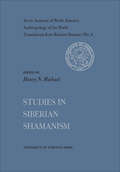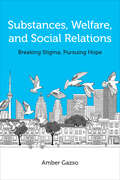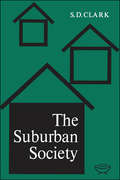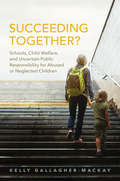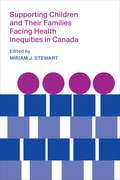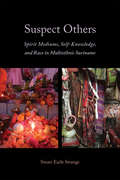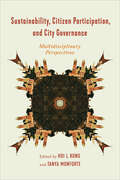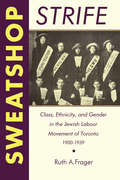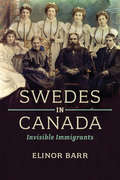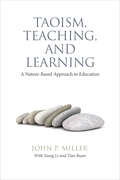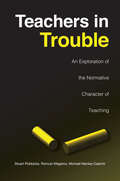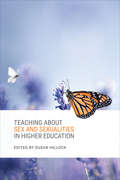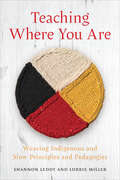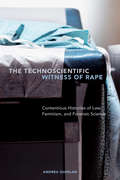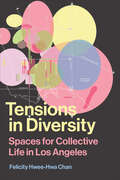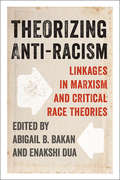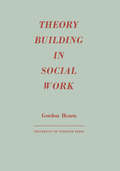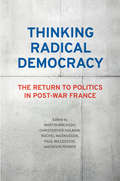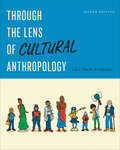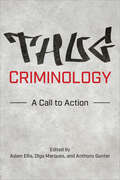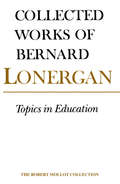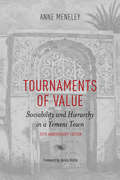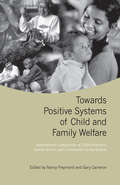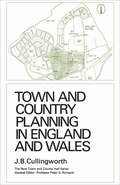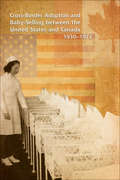- Table View
- List View
Studies in Siberian Shamanism (Arctic Institute of North America Anthropology of the North #4)
by Henry MichaelThe fourth volume in the series sponsored by the Arctic Institute consists of translations of five articles by Russian scholars: "Concepts of the Soul among the Ob Ugrians," by V.N. Chernetsov; "Early Concepts about the Universe among the Evenks (Materials)," by G.M. Vasilevich; "The Shaman's Tent among the Evenks and the Origin of the Shamanistic Rite," by A.F. Anisimov; "The Costume of an Enets Shaman," by E.D. Prokofeva; "Cosmological Concepts of the Peoples of the North," by A.F. Anisimov.
Substances, Welfare, and Social Relations: Breaking Stigma, Pursuing Hope
by Amber GazsoSubstances, Welfare, and Social Relations uses intimate, complex portraits to tell the stories of people who have lived some part of their life course while using or recovering from using substances (such as alcohol or illicit or prescription drugs) and also being part of a family and experiencing poverties. Through these multifaceted stories, layered with a critical analysis of welfare policy, the book probes the deeply entrenched stigma of living with addiction and in low income. Amber Gazso’s work revolves around the three-principles idea that (1) addiction is part of everyday life; (2) if we believe that people are not their addictions, then stigmatizing addiction has no place in society; and (3) destigmatizing addiction and providing better, more imaginative programs and services invites and supports actionable hope. Reflecting on qualitative data, both narrative interviews and policy discourse, Substances, Welfare, and Social Relations illuminates how stigmas can be overturned through a collective praxis of hope.
The Suburban Society
by S. D. ClarkBy questioning the widely accepted picture of suburban society which has been developed by many sociologists, social psychologists, and other serious students of social science, as well as by popular writers, this book will challenge much of our thinking about certain trends and developments in present-day society. The author, a distinguished Canadian sociologist, shows that there is no essential difference between the new society of the suburbs and any other new society in terms of the kind of forces which produced it. The suburban societies so far studied, he maintains, have been selected because they conform to the existing stereotype, and so the myths have been perpetuated.Professor Clark pays special attention to the mass-developed suburbs. He shows that most suburban dwellers live in areas undergoing mass development, and that in such areas none of the characteristics commonly attributed to suburbia are to be found. The people who have moved to the suburbs in such large numbers are not, the author claims, "other directed" as Riesman would maintain, or "organization men" as Whyte has called them. They were, rather, mainly interested in finding houses to live in, having been forced out of the city in search of living space. By examining a number of suburban areas around Toronto, Professor Clark shows how the suburban society developed from crude beginnings, lacking almost all the attributes of a society, to a society largely urban in character.
Succeeding Together?: Schools, Child Welfare, and Uncertain Public Responsibility for Abused or Neglected Children
by Kelly Gallagher-MackayGrowing attention has focused on the education of children in the child welfare system, particularly those in foster care, but ninety-two percent of children in the child welfare system stay with their parents and their educational needs receive little attention. Succeeding Together? is an institutional ethnography that analyses front-line accounts from mothers, teachers, and child welfare workers to explore the educational issues facing abused and neglected children outside of foster care. Kelly Gallagher-Mackay examines the complex policy framework and underlying assumptions that shape the practice of collective responsibility for this vulnerable group, shining a light on the implications of their status in-between private and public responsibility. Gallagher-Mackay breaks down collective responsibility into three areas: surveillance and the duty to report, child welfare’s poorly defined responsibility to provide educational supports, and the privatized nature of teachers’ professional responsibility for caring. The involvement of child welfare represents a public judgment that there should be strong, proactive, and coordinated intervention to ensure protection and well-being. Succeeding Together? reveals significant shortfalls in coordination and commitment to the well-being of society’s most vulnerable.
Supporting Children and Their Families Facing Health Inequities in Canada
by Miriam J. StewartSupporting Children and Their Families Facing Health Inequities in Canada fills an urgent national need to analyze disparities among vulnerable populations, where socio-economic and cultural factors compromise health and create barriers. Offering solutions and strategies to the prevalent health inequities faced by children, youth, and families in Canada, this book investigates timely issues of social, economic, and cultural significance. Chapters cover a diverse range of socio-economic and cultural factors that contribute to health inequality among the country’s most vulnerable youth populations, including mental health challenges, low income, and refugee status. This book shares scientific evidence from thousands of interviews, questionnaires, surveys, and client consultations, while also providing professional insights that offer key information for at-risk families experiencing health inequities. Timely and transformative, this book will serve as an informed and compassionate guide to promote the health and resiliency of vulnerable children, youth, and families across Canada.
Suspect Others: Spirit Mediums, Self-Knowledge, and Race in Multiethnic Suriname (Anthropological Horizons)
by Stuart Earle StrangeSuspect Others explores how ideas of self-knowledge and identity arise from a unique set of rituals in Suriname, a postcolonial Caribbean nation rife with racial and religious suspicion. Amid competition for belonging, political power, and control over natural resources, Surinamese Ndyuka Maroons and Hindus look to spirit mediums to understand the causes of their successes and sufferings and to know the hidden minds of relatives and rivals alike. But although mediumship promises knowledge of others, interactions between mediums and their devotees also fundamentally challenge what devotees know about themselves, thereby turning interpersonal suspicion into doubts about the self. Through a rich ethnographic comparison of the different ways in which Ndyuka and Hindu spirit mediums and their devotees navigate suspicion, Suspect Others shows how present-day Caribbean peoples come to experience selves that defy concepts of personhood inflicted by the colonial past. Stuart Earle Strange investigates key questions about the nature of self-knowledge, religious revelation, and racial discourse in a hyper-diverse society. At a moment when exclusionary suspicions dominate global politics, Suspect Others elucidates self-identity as a social process that emerges from the paradoxical ways in which people must look to others to know themselves.
Sustainability, Citizen Participation, and City Governance: Multidisciplinary Perspectives
by Hoi L. Kong Tanya MonforteThe inaction of nation states and international bodies has posed significant risks to the environment. By contrast, cities are sites of action and innovation. In Sustainability, Citizen Participation, and City Governance, contributors researching in the areas of law, urban planning, geography, and philosophy identify approaches for tackling many of the most challenging environmental problems facing cities today. Sustainability, Citizen Participation, and City Governance facilitates two strands of dialogue about climate change. First, it integrates legal perspectives into policy debates about urban sustainability and governance, from which law has typically stood apart. Second, it brings case studies from Quebec into a rare conversation with examples drawn from elsewhere in Canada. The collection proposes humane and inclusive processes for arriving at effective policy outcomes. Some chapters examine governance mechanisms that reconcile clashes of incommensurable values and resolve conflicts about collective interests. Other chapters provide platforms for social movements that have faced obstacles to communicating to a broad public. The collection’s proposals respond to drastic changes in urban environments. Some changes are imminent. Others are upon us already. All threaten the present and future well-being of urban communities.
Sweatshop Strife: Class, Ethnicity, and Gender in the Jewish Labour Movement of Toronto, 1900-1939
by Ruth FragerIn the first half of the twentieth century, many of Toronto's immigrant Jews eked out a living in the needle-trade sweatshops of Spadina Avenue. In response to their expliotation on the shop floor, immigrant Jewish garment workers built one of the most advanced sections of the Canadian and American labour movements. Much more than a collective bargaining agency, Toronto's Jewish labour movement had a distinctly socialist orientation and grew out of a vibrant Jewish working-class culture.Ruth Frager examines the development of this unique movement, its sources of strength, and its limitations, focusing particularly on the complex interplay of class, ethnic, and gender interests and identities in the history of the movement. She examines the relationships between Jewish workers and Jewish manufacturers as well as relations between Jewish and non-Jewish workers and male and female workers in the city's clothing industry.In its prime, Toronto's Jewish labour movement struggled not only to improve hard sweatshop condistions but also to bring about a fundamental socialist transformation. It was an uphill battle. Drastic economic downturns, hard employer offensives, and state repressions all worked against unionists' workplace demands. Ethnic, gender, and ideological divisions weakened the movement and were manipulated by employers and their allies.Drawing on her knowledge of Yiddish, Frager has been able to gain access to original records that shed new light on an important chapter in Canadian ethnic, labour, and women's history.
Swedes in Canada
by Elinor BarrSince 1776, more than 100,000 Swedish-speaking immigrants have arrived in Canada from Sweden, Finland, Estonia, Ukraine, and the United States. Elinor Barr's Swedes in Canada is the definitive history of that immigrant experience. Active in almost every aspect of Canadian life, Swedish individuals and companies are responsible for the CN Tower, ships on the Great Lakes, and log buildings in Riding Mountain National Park. They have built railways and grain elevators all across the country, as well as churches and old folks' homes in their communities. At the national level, the introduction of cross-country skiing and the success of ParticipACTION can be attributed to Swedes.Despite this long list of accomplishments, Swedish ethnic consciousness in Canada has often been very low. Using extensive archival and demographic research, Barr explores both the impressive Swedish legacy in Canada and the reasons for their invisibility as an immigrant community.
Taoism, Teaching, and Learning: A Nature-Based Approach to Education
by John P. MillerThe ancient Chinese philosophy of Taoism contains profound wisdom about the cosmos, nature, human life, and education. Taoism seeks to be in harmony with nature, and using it as a guide can help us live in a way that is healing to both ourselves and the planet. Taoism, Teaching, and Learning identifies key aspects of Taoist thought and highlights how these principles can promote a holistic approach to teaching and learning. In particular, this book offers educators guidelines and pedagogical examples for how to instil a perspective of interconnectedness into their classrooms. It sheds light on how philosophical Taoism articulates a vision of the universe and life that mirrors the actual realities of nature. Providing frameworks and methods for teaching and learning based on the interconnectedness of life, Taoism, Teaching, and Learning develops an inspiring vision for education and helps us to see our world in a deeply holistic and meaningful way.
Teachers in Trouble: An Exploration of the Normative Character of Teaching
by Michael Manley-Casimir Romulo Magsino Stuart PiddockeThe teacher who has an affair with a student. The teacher who is a transvestite. The teacher who advocates personal beliefs. These are 'teachers in trouble.' Their behaviour, whether it occurs in the classroom or off the job, offends the community and brings down censure from the school board.At root, schools are cultural institutions and teaching, a cultural activity. Teachers are expected to shape students according to accepted community norms. They interpret and apply curricula - and can divert curricula from their intended purpose. Teachers are at the eye of the vortex in the struggle for control over education, buffeted by the forces of social change and conflicting public expectations. The authors of this book examine how teacher conduct is monitored and what types of misconduct can produce 'social dramas.' Boards of reference have been established to arbitrate disputes between school boards and teachers who are dismissed. Drawing on the decisions of these boards of reference across Canada, the authors identify normative issues and propose a classification scheme for contentious behaviours.Teachers in Trouble poses fundamental questions about the role of teachers in society. It is an invaluable guide for teachers and professional organizations, education administrators, and members of the community who are concerned about ethics in our schools.
Teaching about Sex and Sexualities in Higher Education
by Susan HillockTeaching about Sex and Sexualities in Higher Education argues that much more can be done in teaching about sex and sexuality in higher education. This edited collection provides key information on professional training and support, and acts as a crucial resource on sex, sexuality, and related issues. With a focus on diversity, this book features expert contributors who discuss key concepts, debates, and current issues across disciplines to help educators improve curriculum content. This collection aims to provide adequate and appropriate sex education training and opportunities to educators so that they may explore complex personal and emotional issues, build skills, and develop the confidence necessary to help others in their respective fields.
Teaching Where You Are: Weaving Indigenous and Slow Principles and Pedagogies
by Shannon Leddy Lorrie MillerTeaching Where You Are offers a guide for non-Indigenous educators to work in good ways with Indigenous students and provides resources across curricular areas to support all students. In this book, two seasoned educators, one Indigenous and one settler, bring to bear their years of experience teaching in elementary, secondary, and post-secondary contexts to explore the ways in which Indigenous and Slow approaches to teaching and learning mirror and complement one another. Using the holistic framework of the Medicine Wheel, Shannon Leddy and Lorrie Miller illustrate the ways in which interdisciplinary thinking, a focus on experiential learning, and the thoughtful application of the 4Rs – Respect, Relevance, Reciprocity, and Responsibility – can bring us back to the principle of teaching people, not subjects. Bringing forth the ways in which colonialism and cognitive imperialism have shaped Canadian curriculum and consciousness, the book offers avenues for the development of decolonial literacy to support the work of Indigenizing education. In considering the importance of engaging in decolonizing and Indigenizing approaches to education through Slow and Indigenous pedagogies using the lens of place-based and land-based education, Teaching Where You Are presents a text useful for teachers and educators grappling with the ongoing impacts of colonialism and the soul-work of how to decolonize and rehumanize education in meaningful ways.
The Technoscientific Witness of Rape: Contentious Histories of Law, Feminism, and Forensic Science
by Andrea QuinlanIn 1984, the Sexual Assault Evidence Kit (SAEK) was dubbed "Ontario’s most successful rapist trap." Since then, the kit has become the key source of evidence in the investigation and prosecution of sexual assault as well as a symbol of victims’ improved access to care and justice. Unfortunately, the SAEK has failed to live up to these promises. The Technoscientific Witness of Rape is the first book to chart the thirty year history of the sexual assault evidence kit and its role in a criminal justice system that re-victimizes many assault victims in their quest for medical treatment and justice. Drawing on actor-network theory and feminist technology studies, Andrea Quinlan combs through sixty-two interviews with police, nurses, scientists, and lawyers, as well as archival records and legal cases to trace changes in sexual assault forensics, law, advocacy, and anti-violence activism in Ontario. Through this history Quinlan bravely and provocatively argues that the SAEK reflects and reinforces the criminal justice system’s distrust of sexual assault victims.
Tensions in Diversity: Spaces for Collective Life in Los Angeles
by Felicity Hwee-Hwa ChanUrban landscapes are complex spaces of sociocultural diversity, characterized by narratives of both conviviality and conflict. As people with multiple ethnicities and nationalities find their common destinies in thriving globalizing cities, social cohesiveness becomes more precarious as different beliefs, practices, ambitions, values, and affiliations intersect in close proximity, producing social tensions. Tensions in Diversity presents a multi-method comparative study that draws on the experiences of 140 residents of native and immigrant origin, community organizers, and municipal officers in three culturally diverse neighbourhoods of varying income levels in Los Angeles County. Using cognitive mapping analysis combined with data from interviews, surveys, and participant observation, this book explores how exactly coexistence is socio-spatially experienced and negotiated in daily life. Tensions in Diversity identifies the planning and design considerations that enable intercultural learning in the public places within diverse cities. In doing so, this book foregrounds urban space as an active force in shaping coexistence and convivial public environments.
Theorizing Anti-Racism
by Enakshi Dua Abigail Bakanp>Over the last few decades, critical theory which examines issues of race and racism has flourished. However, most of this work falls on one side or the other of a theoretical divide between theory inspired by Marxist approaches to race and racism and that inspired by postcolonial and critical race theory. Driven by the need to move beyond the divide, the contributors to Theorizing Anti-Racism present insightful essays that engage these two intellectual traditions with a focus on clarification and points of convergence.The essays in Theorizing Anti-Racism examine topics which range from reconsiderations of anti-racism in the work of Marx and Foucault to examinations of the relationships among race, class, and the state that integrate both Marxist and critical race theory. Drawing on the most constructive elements of Marxism and postcolonial and critical race theory, this collection constitutes an important contribution to the advancement of anti-racist theory.
Theory Building in Social Work
by Gordon HearnThis is essentially a book about theory building. Instead of actually presenting theory, it suggests and illustrates a particular way in which the social work profession, or any of the other service professions, might pursue the task of developing theory to refine its mode of practice. While written for every professional, it is directed, in particular, to those most actively engaged in the development and refinement of theory for their profession. It is a personal document in the sense that it is a chronicle of the author's reflections about how a profession might pursue most profitably this aspect of its total function.
Thinking Radical Democracy
by Rachel Magnusson Devin Penner Martin Breaugh Paul Mazzocchi Christopher HolmanThinking Radical Democracy is an introduction to nine key political thinkers who contributed to the emergence of radical democratic thought in post-war French political theory: Hannah Arendt, Maurice Merleau-Ponty, Pierre Clastres, Claude Lefort, Cornelius Castoriadis, Guy Debord, Jacques Rancière, Étienne Balibar, and Miguel Abensour.The essays in this collection connect these writers through their shared contribution to the idea that division and difference in politics can be perceived as productive, creative, and fundamentally democratic. The questions they raise regarding equality and emancipation in a democratic society will be of interest to those studying social and political thought or democratic activist movements like the Occupy movements and Idle No More.
Through the Lens of Cultural Anthropology: Second Edition
by Laura Tubelle GonzálezThrough the Lens of Cultural Anthropology presents an introduction to cultural anthropology designed to engage students who are learning about the anthropological perspective for the first time. The book offers a sustained focus on language, food, and sustainability in an inclusive format that is sensitive to issues of gender, sexuality, race, and ethnicity. Integrating personal stories from her own fieldwork, Laura Tubelle de González brings her passion for transformative learning to students in a way that is both timely and thought-provoking. The second edition has been revised and updated throughout to reflect recent developments in the field. It includes further discussion of globalization, an expanded focus on Indigenous peoples in the United States and Canada, revised discussion of sexuality and gender identities across the globe, a brief introduction to the anthropology of science, and updated box features and additional discussion questions that focus on applying concepts. Beautifully illustrated with over sixty full-color images, including comics and maps, Through the Lens of Cultural Anthropology brings concepts to life in a way that resonates with student readers. The second edition is supplemented by a full suite of updated instructor and student resources. For more information, go to lensofculturalanthropology.com.
Thug Criminology: A Call to Action
by Adam Ellis Olga Marques Anthony GunterThug Criminology combines the urgent and as yet silenced voices of former gang/street-involved peoples turned academics, alongside their allies, in order to challenge and disrupt mainstream and academic knowledge about urban youth gangs specifically, and the "streets" more broadly. The book questions how the "streets" – and the racialized and marginalized urban communities who inhabit them – are researched, taught, and subsequently politicized. It looks at who gets to produce such knowledge, who benefits from such knowledge, and whose voices are privileged within dominant academic and public policy discourses. Drawing on decolonizing methodologies, the book seeks to give voice to scholars with lived experience of a "street" or gang life. Adam Ellis, Olga Marques, and Anthony Gunter reclaim the terms thug and gang to reconstruct the narrative around street-involved youth, seeing them not as criminals but rather as survivors of historical oppression and trauma. Challenging the colonial structure of criminology and other disciplines that focus on street crime, Thug Criminology aims to disrupt and disentangle the knowledge that has been produced on gangs and urban violence.
Topics in Education: The Cincinnati Lectures of 1959 on the Philosophy of Education, Volume 10
by Bernard Lonergan Frederick Crowe, S.J. Robert Doran, S.J.Bernard Lonergan devoted much of his life's work to developing a generalized method of inquiry, an integrated view which would overcome the fragmentation of knowledge in our time. In Topics in Education Lonergan adapts that concern to the practical needs of educators. Traditionalist and modernist notions of education are both criticized. Lonergan attempts to work out, in the context of the human good and the 'new learning,' the rudiments of a philosophy of education based on his well-known discovery of norms in the unfolding of intelligent, reasonable, and responsible consciousness. He explores how the scientific revolution has changed ways of understanding reality, and examines the implications of this revolution for education. Topics in Education, the first publication of his 1959 lectures, follows Lonergan on his early explorations of human development, studies the theories of Jean Piaget and others, and concludes with his own original ideas in the realms of ethics, art, and history.
Tournaments of Value: Sociability and Hierarchy in a Yemeni Town
by Anne MeneleyA significant contribution to our understanding of the varied experience of women in the Islamic Middle East, Tournaments of Value gives a careful description of a world of female socializing, and the velocity, energy, and elaborateness of this remarkable female social world. Meneley's data challenges assumptions about the cross-cultural validity of a division between household and community, between domestic and public domains. She demonstrates the fluidity of social life, the shifting nature of community organization, and in doing so provides a welcome counterpoint to more rigid formulations of Middle Eastern social structure usually expressed in ethnographies. Tournaments of Value incorporates vignettes to illustrate more analytical points and to enliven the text, allowing the reader to enter fully into the rich world of Zabid in Yemen. This expanded 20th anniversary edition introduces this seminal work on Middle Eastern ethnography and women's studies to a new generation of readers.
Towards Positive Systems of Child and Family Welfare: International Comparisons of Child Protection, Family Service, and Community Caring Systems
by Gary Cameron Nancy FreymondThe need for services that respond to the ‘maltreatment’ of children and to the struggles of families is at the core of social service systems in all developed nations. While these child and family welfare systems confront similar problems and incorporate common elements, there are substantial differences in philosophy, organization, and operation across international settings and models.In this new collection of essays, Nancy Freymond and Gary Cameron have brought together some of the finest international minds to provide an original and integrated discussion of child protection, family service, and community caring models of child and family welfare. The volume not only examines child protection and family service approaches within Western nations – including Canada, the United States, England, the Netherlands, France, and Sweden – it is also the first comparative study to give equal attention to Aboriginal community caring models in Canada and New Zealand.The comparisons made by the essays in this volume allow for a consideration of constructive and feasible innovations in child and family welfare and contribute to an enriched debate around each system. This book will be of great benefit to the field for many years to come.
Town and Country Planning in England and Wales: The Changing Scene (The New Town and County Hall Series #8)
by J. B. CullingworthThe British Town and Country Planning machine is the most sophisticated in the world, yet its inadequacies are only too apparent to those who are familiar with its evolution and operation. During the last decade it has been in a constant state of change in an attempt to come to terms with the needs of a rapidly changing society. This work attempts to provide a comprehensive picture of the planning system and the ways in which it is changing. An historical introduction leads into an account of the machinery of planning and the major new provisions of the 1968 Town and Country Planning Act. Special attention is then paid to the problems of land values, amenity, derelict land, planning for leisure, new and expanding towns, urban renewal and the search for an adequate means of regional planning. The book ends with an examination of some of the fundamental problems of public acceptance of, and public participation in, a democratic system of planning. The book is aimed at the student and the general reader. It is not a legal text, but neither is it intended as a polemic.
The Traffic in Babies
by Karen BalcomBetween 1930 and the mid-1970s, several thousand Canadian-born children were adopted by families in the United States. At times, adopting across the border was a strategy used to deliberately avoid professional oversight and take advantage of varying levels of regulation across states and provinces. The Traffic in Babies traces the efforts of Canadian and American child welfare leaders--with intermittent support from immigration officials, politicians, police, and criminal prosecutors--to build bridges between disconnected jurisdictions and control the flow of babies across the Canada-U.S. border.Karen A. Balcom details the dramatic and sometimes tragic history of cross-border adoptions--from the Ideal Maternity Home case and the Alberta Babies-for-Export scandal to trans-racial adoptions of Aboriginal children. Exploring how and why babies were moved across borders, The Traffic in Babies is a fascinating look at how social workers and other policy makers tried to find the birth mothers, adopted children, and adoptive parents who disappeared into the spaces between child welfare and immigration laws in Canada and the United States.
